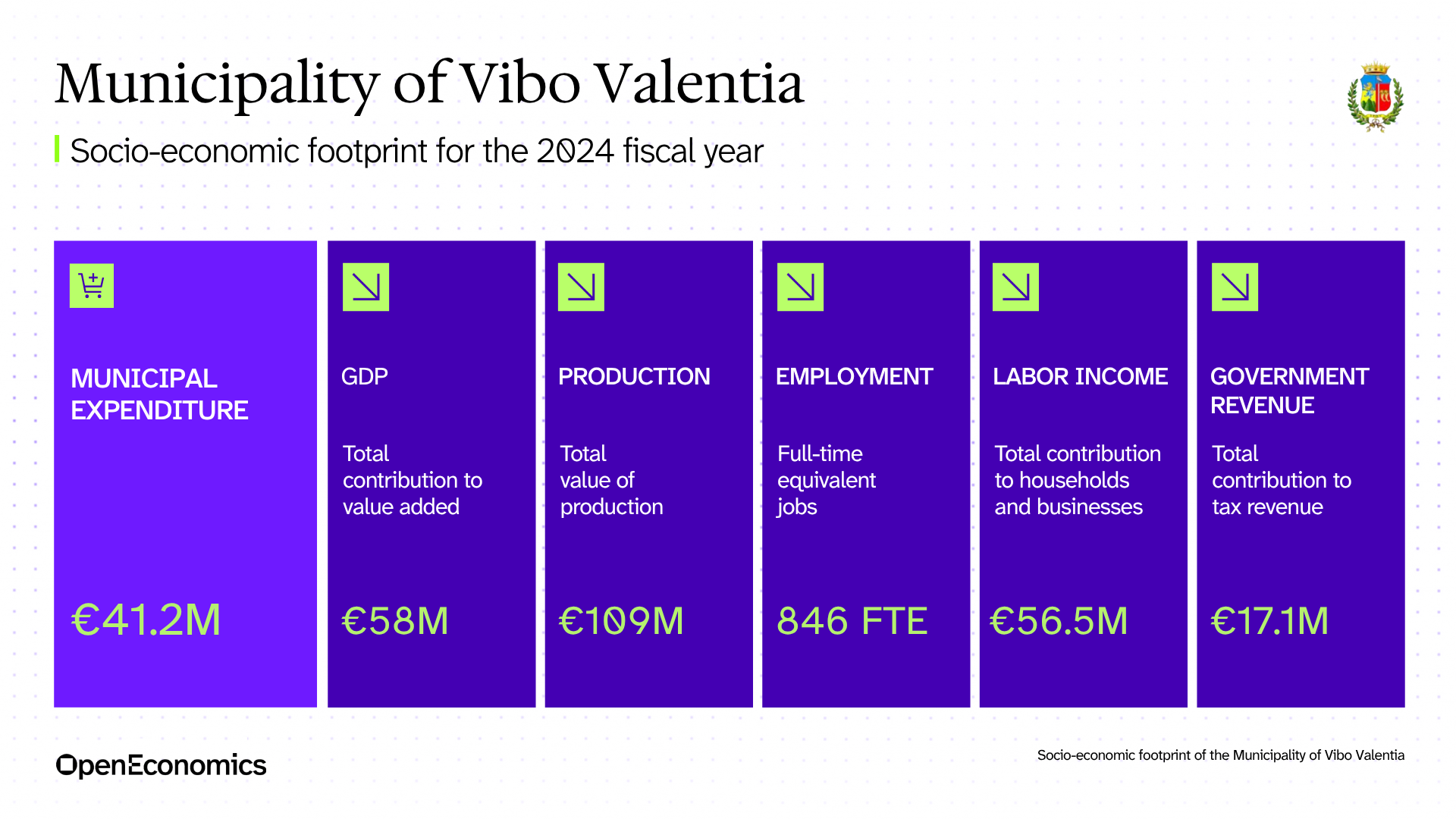The Municipality of Vibo Valentia, with OpenEconomics, piloted Civiqa, a platform that assesses the socio-economic impact of municipal expenditure.
OBJECTIVES
A public administration that evaluates the benefits of public spending and plans policy transparently
Measure credibly the socio-economic value created by the municipality’s spending—distinguishing direct, indirect, and induced effects—to support evidence-based decision-making and dialogue among stakeholders. Make scenarios and alternative spending options comparable through cost‑benefit analysis, with clear and verifiable indicators for policy planning and communication with the community.
SOLUTION
Civiqa: integrated assessments for the smart governance of the municipality
Civiqa enables the Municipality of Vibo Valentia to assess the economic and social effects of projects, works, and measures, based on methodologies validated by leading international institutions.
Within socio-economic impact analysis, the platform translates each initiative into core quantitative indicators: GDP, employment, government revenue, and income.
The analysis relies on a Social Accounting Matrix (SAM) with a 63‑sector disaggregation, using ISTAT, Eurostat, and OECD data to simulate supply‑chain responses to each spending stimulus.
Civiqa integrates ECBA – Economic Cost‑Benefit Analysis, with indicators such as SROI (Social Return on Investment), ENPV (Economic Net Present Value), and EIRR (Economic Internal Rate of Return), and measures ESG impacts to provide a comprehensive and comparable view of the benefits and costs of public investment choices.
The Socio-economic footprint
OpenEconomics also measured the socio-economic footprint, which quantifies the economic effects triggered by an entity’s annual current expenditure on GDP, employment, income, and government revenue, capturing the overall impact along value chains in the year considered. In this case, the analysis covered the Municipality of Vibo Valentia’s 2024 expenditure.

RESULTS
Key data-driven outcomes for smarter governance
In 2024, Vibo Valentia’s public spending of 41.2 million euros generated approximately 58 million euros in additional GDP, 846 full‑time equivalent (FTE) jobs, 56.5 million euros in income for households and businesses, and 17.1 million euros in government revenue. The platform enables a more integrated, transparent, and value‑driven governance of public expenditure. Civiqa supports comparison across alternative spending and investment scenarios—highlighting costs, benefits, and impacts—and strengthens communication by showcasing the citizen‑level impact of public policies.
ADDED VALUE
Informed choices: communicating the value of public spending to local stakeholders
• Methodological rigor: impact evaluation of spending, integrated with ECBA, delivers robust, verifiable, and replicable estimates;
• Clear, comparable KPIs: indicators on GDP, employment, income, and government revenue enable comprehensive and comparative assessment of spending impacts and economic benefits;
• Governance transparency: improved user experience for administrators and media thanks to intuitive dashboards, strengthening communication with the community.













